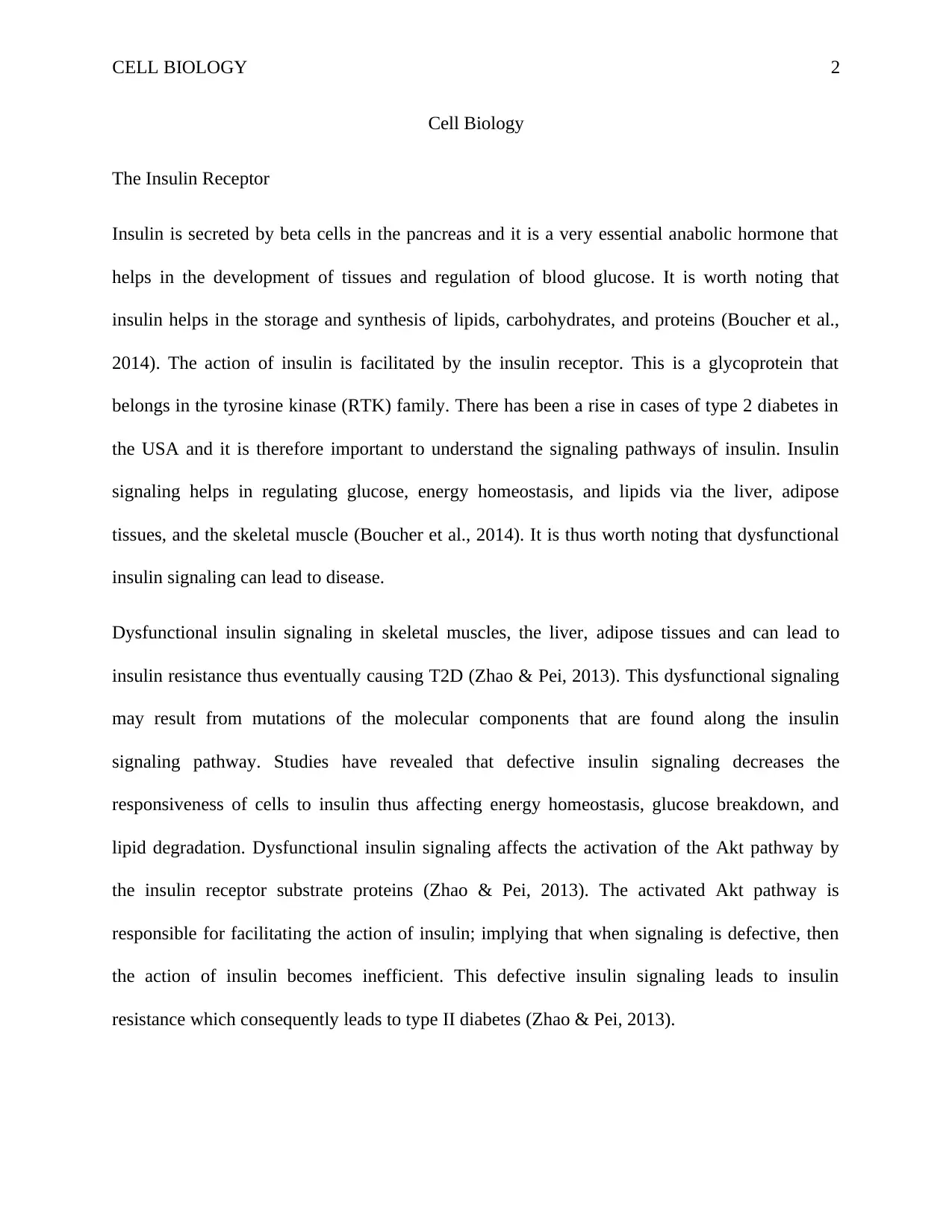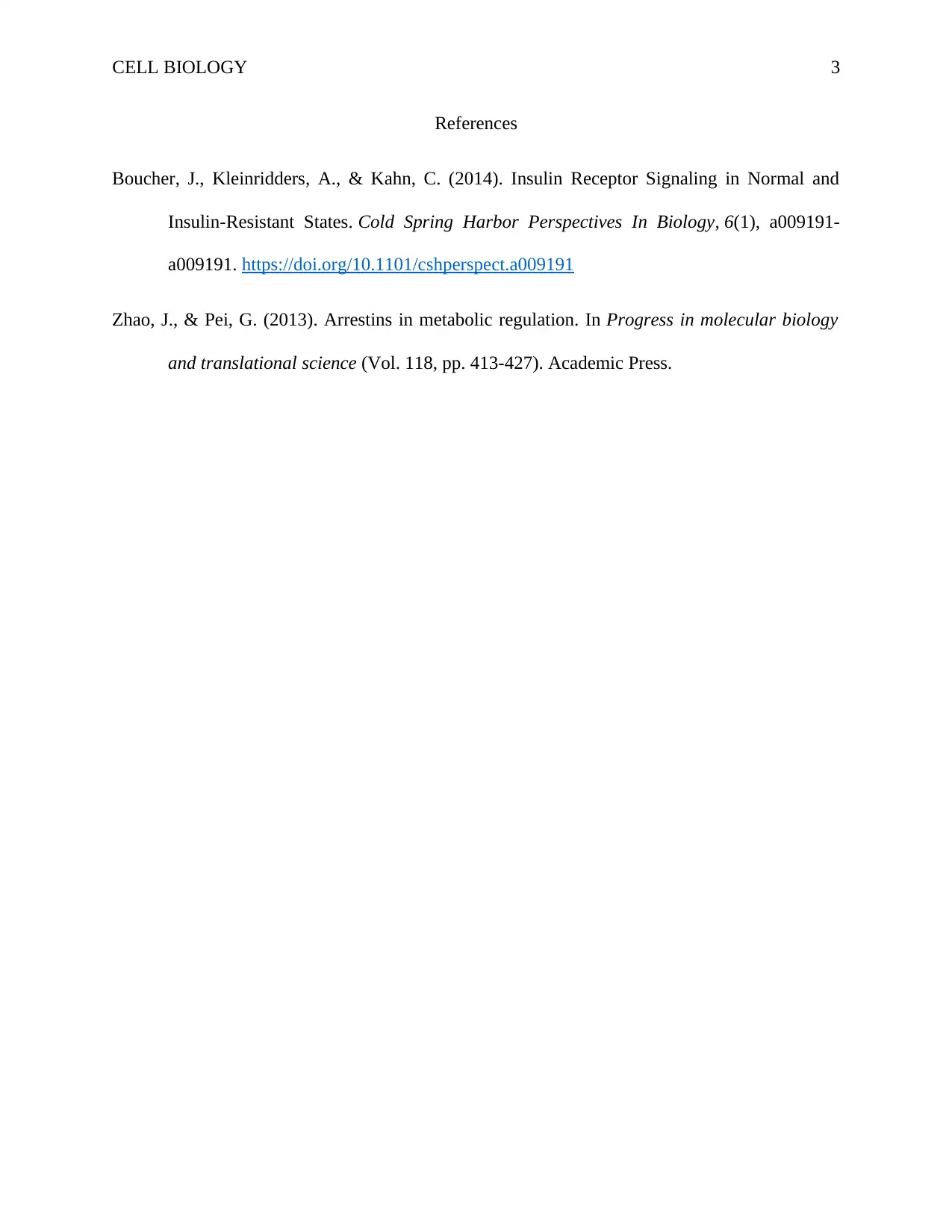Cell Biology: Insulin Receptor, Signaling, and Type 2 Diabetes Report
VerifiedAdded on 2022/08/13
|3
|405
|35
Report
AI Summary
This report delves into the critical role of the insulin receptor in cell biology. It explores the receptor's function in glucose metabolism, energy homeostasis, and the synthesis of lipids, carbohydrates, and proteins. The report highlights the insulin receptor's involvement in signaling pathways and how dysfunctional signaling can lead to insulin resistance and type 2 diabetes. It examines the Akt pathway and how its activation is impacted by the insulin receptor substrate proteins. Furthermore, it emphasizes the importance of understanding insulin signaling for managing and preventing diabetes. The report references key studies that support these findings, providing a comprehensive overview of the insulin receptor's significance in cellular processes and disease.
1 out of 3










![[object Object]](/_next/static/media/star-bottom.7253800d.svg)